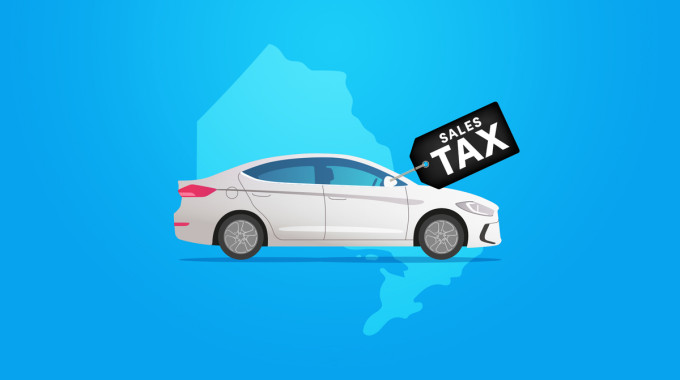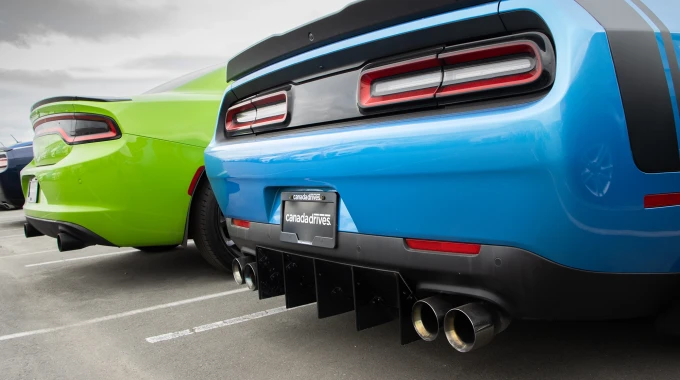
Understanding BC Used Car Taxes (And How Luxury Tax Works)
In British Columbia, where you buy, the price you pay, and the type of used car all factor into how your car taxes are calculated.
It’s a little confusing but as a wise person once said, “knowledge is power”. In this case, that knowledge can help you make sense of what you’re paying and why you’re paying it. It might even help you save some cash.
How car sales taxed in BC - Do you pay GST and PST?
Car sales are taxed differently in each province but British Columbia is probably the quirkiest of them all. For example, things are pretty straightforward in Alberta, where there’s no provincial sales tax. That means you pay 0% taxes on any privately sold used vehicle you buy there.
Compare that with BC, where there’s not only provincial sales tax (PST) to contend with but the rate of that tax fluctuates depending on a few different factors.
In BC, you’ll find yourself dealing with a few different tax acronyms:
- GST = Federal Goods and Services Tax
- PST = Provincial Sales Tax
- HST = Harmonized Sales Tax
GST is set at 5% across Canada and you’ll pay that on any vehicle—new or used—purchased at any dealership. You’ll also have to pay PST, which can be anywhere from 7-20% depending on the sale price of the vehicle, and where you purchased it. HST refers to the total of both taxes you pay.
For example, here’s a breakdown of the taxes you’d pay at a dealership on a new or used vehicle priced under $55,000 in BC:
|
GST |
PST |
HST (Subtotal of GST + PST) |
|
5% |
7% |
12% |
Do you have to pay tax on used cars in BC?
You do have to pay tax on a used car in BC, but when it comes to how those taxes are calculated and paid, there’s a difference between buying a used car in a dealership versus through a private sale.
Tax on a used car at a dealership
At a dealership, you’ll pay a combination of GST and PST on the purchase of a used car. The GST is set at 5% and the rate of PST you pay depends on the sale price of the vehicle. For vehicles under $54,999.99 the PST rate is 7% and it increases from there, all the way to 20% PST for a a vehicle with a purchase price over $150,000:
|
PST Rates On Used Cars (Dealership) |
|
|
Purchase Price |
PST Rate |
|
Under $55,000 |
7% |
|
$55,000 - $55,999 |
8% |
|
$56,000 - 56,999 |
9% |
|
$57,000 - $124,999 |
10% |
|
$125,000 - $149,999 |
15% |
|
Over $150,000 |
20% |
Tax on a used car in a private sale
In a private sale, you’ll only have to pay PST on the purchase. But there’s a catch: Even though you’re not paying GST, the PST rate is higher on privately sold vehicles in BC, as a way of essentially making up the difference from the missing GST. In BC, the PST rate for vehicles under $125,000 is 12%, and goes up from there.
|
PST Rates On Used Cars (Private Sale) |
|
|
Purchase Price |
PST Rate |
|
Under $125,000 |
12% |
|
$125,000 - $149,999 |
15% |
|
Over $150,000 |
20% |
Paying PST on a privately sold used vehicle
When you buy a used car at a dealership (or online retailer) paying PST is simple. You pay it at the time of sale as part of the purchase price, so it’s all pretty straightforward. When you’re buying a used vehicle from a private seller, paying PST isn’t as cut and dry.
In cases where a vehicle is purchased from a private seller, PST is typically calculated and collected when the buyer goes to register that vehicle with ICBC.
Documentation required for PST on private sales
When you go to register a car you bought from a private seller, ICBC will need some key pieces of documentation on the sale. Most importantly, you’ll need to provide proof of the purchase price you paid or, if the vehicle was a gift, documentation of the vehicle’s fair market value. Make sure you receive proper documentation on the sale from the buyer before completing the transaction.
If the private seller you purchased the vehicle from is registered to collect PST, they’re required to collect PST from you at the time of sale. In these rare cases, make sure you have documentation from the seller proving you paid PST on the sale and bring this with you to ICBC when you register the car.
How PST is calculated at ICBC
When registering your vehicle, ICBC will look at the purchase price and assess it against what’s considered a fair market value for that vehicle. From this, they’ll determine the amount of PST you’ll need to pay. This is done to prevent buyers and sellers from frauding the system in order to pay less PST.
For example, if you and a buyer agree to a purchase price of $5,000 on a used car, you might expect to pay $600 in PST (12%) on that at the time of registration with ICBC. However, if ICBC deems the purchase price was below the fair market value of the vehicle, they’ll charge you PST on the fair market value. Let’s say ICBC considers the fair market value to be $10,000. In that case, you’ll be required to pay $1,200 in PST.
If you disagree with ICBC’s assessment of the vehicle’s value, you’ll have to pay for a mechanic to do an appraisal on why the vehicle is worth less.
What’s the BC luxury car tax?
The BC luxury car tax is often-cited but little understood. It’s really just referring to the thresholds at which PST increases, depending on the purchase price of a vehicle. Whether you buy a used car from a dealership or a private seller, the amount of PST you’ll need to pay will fluctuate depending on the purchase price.
|
Dealership Sale Price (PST) |
Private Sale Price (PST) |
|
Under $55,000 (7%) |
Under $124,999 (12%) |
|
$55,000 - $55,999 (8%) |
|
|
$56,000 - 56,999 (9%) |
|
|
$57,000 - $124,999 (10%) |
|
|
$125,000 - $149,999: (15%) |
$125,000 - $149,999 (15%) |
|
Over $150,000: (20%) |
Over $150,000 (20%) |
PST for new or used vehicles purchased in BC
How is luxury tax calculated?
The first threshold is $55,000. If you buy a used car under this price, you’ll pay a PST rate of 7%. At the top end of the spectrum is where the tax increases really start to take a bite. For vehicles over $125,000 you’re looking at 15%, and for vehicles over $150,000 the rate jumps to a whopping 20%. So if you’re thinking about picking up a high-priced luxury supercar, you’ll need to budget well beyond the sticker price.
For example, let’s say you’re buying a shiny new-to-you Lamborghini for $150,000. At 20% PST, you’ll be looking at an additional $30,000 on top of the purchase price. Yikes. And don’t forget, if you’re buying that used Lambo from a dealership you’ll also be paying 5% GST as well, which amounts to another $7,500.
Tax breaks for used zero-emission electric vehicles
These days there are plenty of reasons to consider switching to a zero-emission electric vehicle. From rapidly rising gas prices to concerns over the environment, going EV is an increasingly popular option with Canadians. But now you can add tax breaks to the list of reasons to switch as well.
If you buy an eligible used electric vehicle in BC, either from a dealership or a private seller, the PST thresholds are considerably higher, meaning you can buy a higher priced vehicle and pay a lower PST rate. For example, you’ll pay 7% PST on any eligible used EV under $75,000. At that same price on a gas-powered car or truck, you’re looking at 10% PST.
|
Eligible EVs |
Non-EVs |
|
Under $75,000 (7%) |
Under $55,000 (7%) |
|
$75,000 - $75,999.99 (8%) |
$55,000 - $55,999 (8%) |
|
$76,000 - $76,999.99 (9%) |
$56,000 - 56,999 (9%) |
|
$77,000 - $124,999 (10%) |
$57,000 - $124,999 (10%) |
|
$125,000 - $149,999 (15%) |
$125,000 - $149,999 (15%) |
|
Over $150,000 (20%) |
Over $150,000 (20%) |
Less taxing, more relaxing
We think buying a car should be simple and straightforward. Get pre-approved for your next car loan today. We will connect you with a dealership partner in your area who will show you all the vehicles you qualify for, just pick the one you want and drive away!







